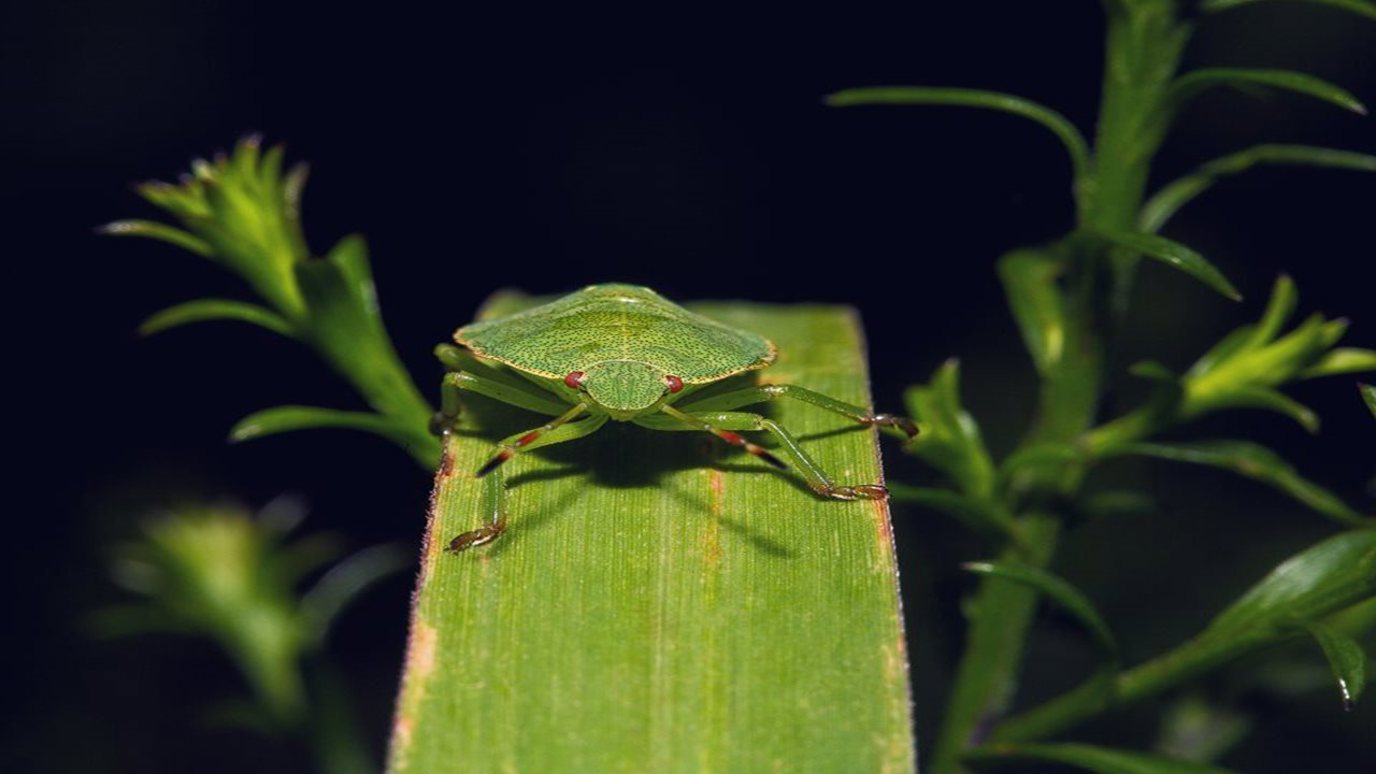
Flying, biting, crawling, jumping, stinging, or wriggling bugs can often put a damper on someone’s outdoor experience. Everyone (except maybe the junior entomologists among us) who spends time adventuring in an RV knows the trouble of trying to stay bug-free.
When you’re outside, you’re in the insects’ territory. But inside of your RV is your home, and you can do your best to keep the bugs out by taking protective steps for yourself and the vehicle. This guide will share tips for how to keep bugs out of your RV.
Tips for Keeping Your RV Bug-Free
Luckily, there are a lot of methods you can use to keep bugs out of your RV. Here are some tips and tricks for staying bug-free.
Cover the Entrances
In the effort to keep the creepy crawlies away, try not to make it too easy on them by offering an open door to your space.
Inspect and Repair
Inspecting your RV should be one of the first and last steps of any successful RV trip. Take a look around the exterior for any holes or cracks before you leave. The size of the hole will affect how best to repair it, but most small gaps can be handled with caulk or silicone filler before they become a big problem.
For those with pop-up campers or RVs with canvas slide-outs, be sure to inspect the canvas for rips or tears as well. Having an extra patch-up kit stored inside your RV will help cover incidents that happen on the road.
Screens
Several of your onboard appliances may vent to the outside. These vents can’t be covered, but there are screens you can install to help keep out the insects. Check your refrigeration system and any other exhaust pipes first.
Installing a mesh screen door on your RV can be one of the best ways to keep bugs out, even when someone forgets to shut the door. Magnetic screens close automatically but are gentle enough that your pet can come and go with ease. For a more luxurious solution, you can get an entire screened-in room that attaches to your camper’s awning. Carve out a little of your campsite as an outdoor bug-free haven.
Reduce Your Contact Points
To deter crawling nuisances such as ants, spiders, or other unwanted visitors from climbing onto and into your RV, minimize what touches it directly. That doesn’t mean you should skip out on any of the stabilizing legs to safely set up and level your RV. Your safety always comes first! Just try not to let plants, trees, or outdoor furniture touch your parked RV if possible.
Mothballs
Mothballs have moths right in the name, but they’ll do more than just deter moths. Mothballs (and, to a lesser extent, dryer sheets) are an excellent repellent to most insects, spiders, mice, snakes, and more. Store a small amount in the interior cabinets and storage areas away from your food. If you winterize your RV, store a few extra mothballs under and around where you are parked.
Last Lines of Defense
Once you arrive at the campsite, there are plenty of ways you can still continue the eternal quest to keep out the bugs. Utilize these techniques to deter insects from coming inside once you make it to your perfect getaway.
Excellent Housekeeping
One of the easiest things you can do to make your RV a little less inviting to bugs and rodents is to keep your campsite clean. Inside your camper, be sure to clean up completely after meals. Don’t leave out any food, dirty dishes, or smelly trash in your camper, so you don’t attract anything inside. Your clean kitchen is the first line of defense. Wipe down your counters and dispose of trash properly after each meal. Outside at your campsite, make sure you pick up and properly dispose of any dropped food items or trash.
Seal Your Dry Foods
All of your food should be properly stored, either sealed or put back in the fridge, so nothing is left out in the open. If you put your dry foods, such as cereal or trail mix, in sealable canisters, you can not only ensure that your foods stay fresher longer, but also you’ll prevent ants and other crawling insects from making themselves at home in your food supply.
No One Gets A Free Ride
As much as we don’t want to leave the door open, we also don’t want to bring in any strays. Many insects can catch a ride in your clothing, hats, or hair. Before entering the RV, check yourself quickly to make sure you’re not carrying any potentially dangerous bugs, such as ticks in with you. Your pets may also pick up critters clinging to their fur. Check them closely and be sure they have active flea and tick protection.
Non-Chemical Bug Defenses
Deet gets a bad rap sometimes, and for many reasons, people may not want to use harsh chemicals on their skin for bite protection. There are plenty of ways to use natural ingredients for their personal bug defense. Citronella is a plant whose extract is known for its mosquito-repellent qualities. Maybe you’ve seen the candles? You can’t have open flames just anywhere, so you can use citronella oil in a small mister bottle with diluted rubbing alcohol to spritz inside.
Peppermint, cinnamon, mint, black pepper, tea tree, lavender, eucalyptus, rosemary, thyme, and vinegar are other natural oils, extracts, or ingredients that can go into making a natural bug spray that will smell great to us but not the bugs. Lightly mist your homemade oil spray on your person and in the RV, but take care not to use too much. The oil in the spray could stain or discolor your upholstered fabric or settle on the floor making it slippery.
Know What To Expect
Sometimes, there’s just nothing you can do to keep bugs out completely. You have to know what you’re getting into when you book your spot. That perfect lakeside secluded camping spot is going to have many more mosquitos than the high alpine mountain locale. The southwest has scorpions to contend with, some campgrounds attract tons of bees or flies, and other areas still will have their own pesky critters that will pose their own challenges. Plan your trip accordingly—whether that means an entirely different approach or just bringing extra bug spray.
Mix and match the tips that work best for you and your fellow campers. A combination of prevention and deterrence together is the best way to keep bugs out of an RV. You’ll sleep much better inside knowing the bugs are on the outside.





